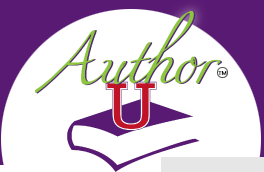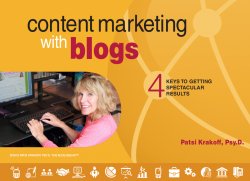 I’ve been sharing about how to start your expert ebook project right, by being clear about who your readers are and what they most want to know.
I’ve been sharing about how to start your expert ebook project right, by being clear about who your readers are and what they most want to know.
How should you go about reader research? For example, if you wanted to know how seniors are using the Internet, you could look at the Pew Research site.
How else can you research your readers so that you get this important first step right: How do you focus your expert ebook content on readers’ frustrations and challenges by discovering what those are?
The truth is it doesn’t matter how much of an expert you are or how much you know about your field. You still need to research beyond what you already know or assume.
Don’t skip researching your readers simply because you already have 20-30 years of working with people like them. I don’t care if you’ve got a Nobel Prize in Economics.
Do you think Daniel Kahnemann rests on his ground-breaking work in Behavioral Economics? No, he does not. He is continually researching and discovering more about how theories apply to real people in the real world. His bestselling book Thinking Fast and Slow is written (and priced) for readers, not academics. You may not have a Nobel Prize or even a Ph.D., but even if you do, you can’t write an expert ebook without researching what readers want to know. They most likely don’t want to fully understand your theories, graphs and charts anyway. Some readers do, but mostly they’re looking to know how what you know can help them fix a problem.
Readers want solutions delivered in plain language with examples of how other people just like them succeed. How can you research your targeted audience and discover more about how and what to write?
Here are a few tools you can use. But pay attention to the quality of information you get online. Particularly when researching social networks, comments are often biased in favor of negativity.
People complain more than they praise. Which doesn’t mean negative comments should be discounted. People don’t complain about things they don’t care about. As an expert, however, your experience can guide you when using these online research tools:
- Google or other search engines: Use the same keyword phrases you imagine an ideal reader would use to find information on a problem. Pay attention to how many websites, articles, blog posts, videos, etc. deal with a problem in your field.
- Blogs: Look for established blogs in your field by using a blog aggregator site like AllTop.com. They index thought leader blogs in just about any field. For example, my blog WritingontheWeb.com is listed under Content Marketing.
- Twitter: What are people saying about your topic? What are their worries, complains, and raves? Use a tool such as the #Discovery feature to type in possible Twitter topics.
- LinkedIn: Use the LI search bar to locate people in your area of expertise and research what others are writing.
- Facebook: Use the FB search bar to ask your followers what keeps them up at night.
- Surveys: Ask your email list what their most pressing concerns are about your field. Use a survey tool such as SurveyMonkey.com.
What else could you use to find out more about what your readers want to know? I’d love to hear what tools you use; leave me a comment.
(Image: freedigitalphotos.net)














Recent Comments